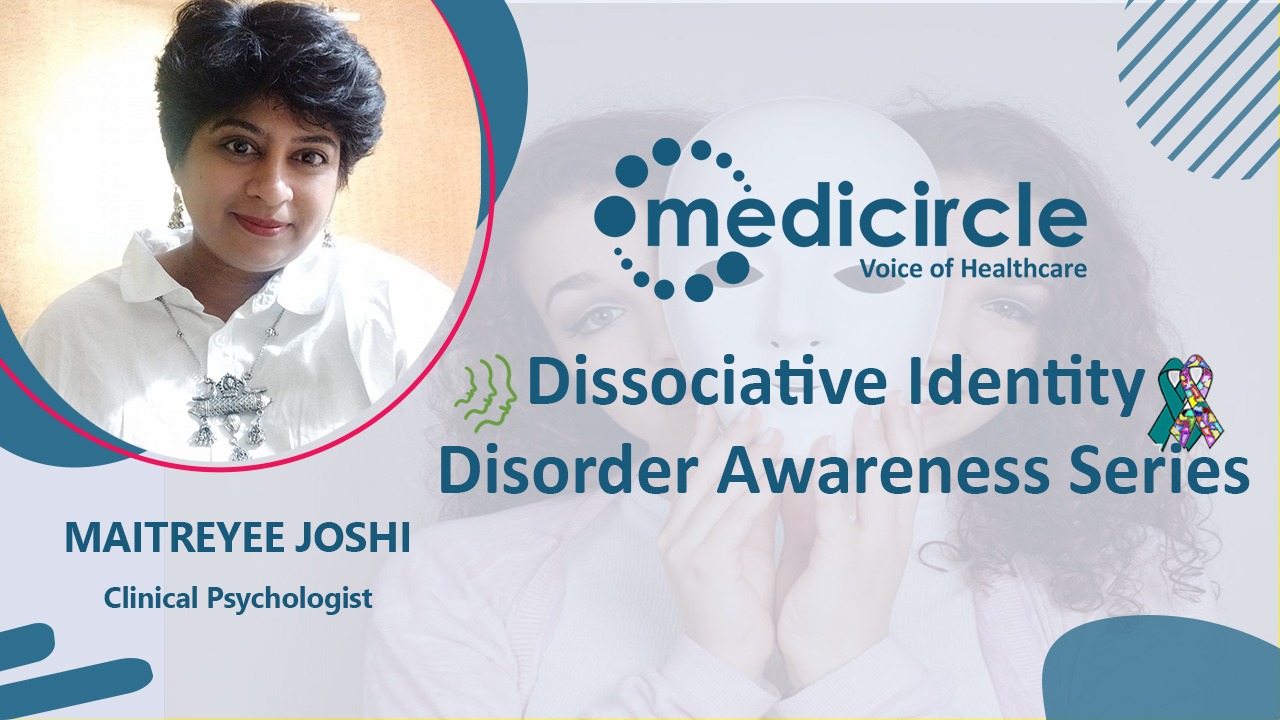Dissociative Identity Disorder (DID), formerly known as Multiple Personality Disorder is a relatively common psychiatric disorder which is characterised by carrying distinct or different personality. In addition, individuals with DID experience Dissociative Amnesia (DA)- a memory disruption for important personal information as well as for current and past personal experience. Medicircle presents you the series on Dissociative Identity Disorder to create awareness amongst people.
Dr. Maitreyee Joshi is a clinical psychologist, a writer/poet, and an ophthalmologist with a demonstrated history of working in health wellness and fitness Industry. She is skilled in Medical devices, Healthcare, Medical education, Medicine, Clinical Psychology.
A Child Needs to be Cared
Dr. Maitreyee clarifies, “Dissociative Identity Disorders are caused as a coping mechanism (coping mechanism is a way to deal with the stress caused by life) due to severe trauma, abuse or severe kind of stress. It is more common in children having faced severe stresses like abuse, dysfunctional family environment, kind of bullying at school and sexual abuse. Children develop this dysfunctional kind of coping mechanism and can carry it to their adulthood. If a person has symptoms like memory loss, nightmares, depression, anxiety, wandering away, distinct different personalities, tendency to self-harm, they must take help of a Mental Health Professional.”
Dr. Maitreyee says, “Dissociative Identity Disorder is seen more in children who have undergone severe trauma, like child abuse, sexual abuse or is in a dysfunctional family, the child needs help immediately. A child needs to be made aware the possibility of abuse in their immediate environment like school, school buses etc from strangers and unknown people. If someone from their immediate environment is touching them inappropriately, or misbehaving with them which they feel is strange, they need to be taught to report it to elders or teachers they trust. If there is abuse in the family, it needs to be identified and the child should be given a safe place to live and study. If neighbours or acquaintances or relatives observe or sense family issues, they need to be reported and tackled,” points Dr. Maitreyee.
Be a Helping Hand for DID Patients
Dr. Maitreyee emphasises, “At the time of worsening of symptoms like memory loss, taking up of a distinct or different personality, the patient suffering can cause self-harm as well as harm to others and need immediate help.
Family or friends of those suffering from Dissociative Identity Disorder need to understand that the child or adult is not doing anything on purpose. His or her behavior is out of his control. He or she needs lot of emotional support and sympathy. The person suffering from this has to develop trust on his or her caretakers. It is not easy to treat Dissociative Identity Disorder. Regular and timely therapy sessions are required. Along with this medication for other accompanying problems such as depression, anxiety and regular follow-up is highly recommended,” says Dr. Maitreyee.
(Edited by Renu Gupta)

 “Family or friends of those suffering from Dissociative Identity Disorder need to understand that behavior of the person is out of control and needs lot of emotional support and sympathy,†Dr. Maitreyee Joshi, Clinical Psychologist.
“Family or friends of those suffering from Dissociative Identity Disorder need to understand that behavior of the person is out of control and needs lot of emotional support and sympathy,†Dr. Maitreyee Joshi, Clinical Psychologist.









.jpeg)








.png)
.png)

.png)
.png)
.png)

.png)
.png)
.png)

.png)
.png)